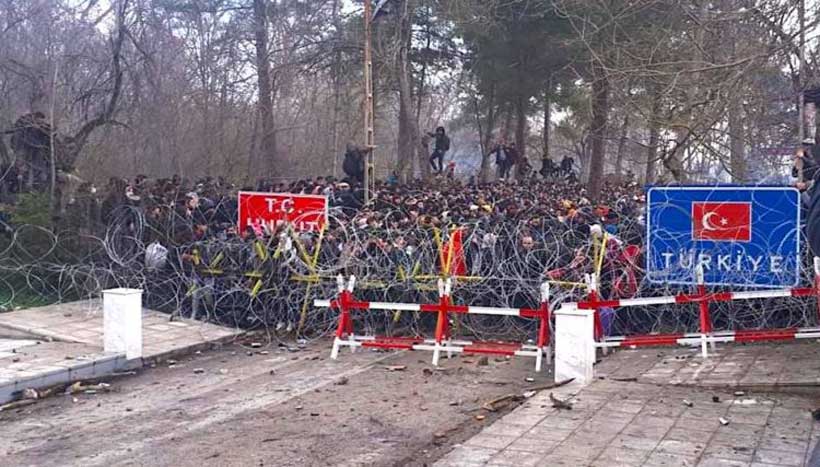The global arena has many players, more diverse than ever, and a variety of games for playing. Alongside these actors, the geographical sources of power have also become more diverse than ever before, and this has led to various strategies for the actors to achieve their goals and interests. Strategies in a variety of shapes and forms have shaped relationships from partnership to conflict in the world stage. In the meantime, having a geopolitical attitude can better describe the global power game scene and the strategies of the actors.
For example, the issue of refugees along the Turkish-Greek border has become a very prominent global issue these days. On the one hand, there is the issue of human rights and the humanitarian approach to refugee issues along the Greek border and on the other hand, the discussion of the actors behind the shaping of the game has great importance. Understanding the second part of this situation based on the geopolitics of refugees can be easily learnt. If we define geopolitics as follows: Geopolitics is the knowledge of designing and reviewing actors’ strategies for achieving the interests and goals based on geographical sources of power. If the geographical source of power be refugees, the design of strategies by actors to achieve their goals and interests can be seen as the geopolitics of refugees. On this basis, it can be said that the geopolitics of hunger is the knowledge of designing and revising actors’ strategies to achieve the interests and goals of the refugees (as a geographical source of power).
Based on this definition, if we want to look at the global space in general and the Middle East space in particular, we can come up with different types of actors’ strategy design to exploit refugees in the context of geopolitics of refugees. The last example cites Turkey’s refugee-based strategies as a geographical source of power to achieve its goals and interests in Syria and northern Iraq. In this scene, Turkey wants to gain its share and role in Syria and pursues different strategies to achieve this. In order to be able to accompany other actors in this scene or reduce their competition and pressure and shape their relationships better and more powerfully and used refugees as a geographical source of power. The actor opposes Turkey’s strategy of exploiting refugees in the first step of the European Union, which has criticized Turkey’s actions in Syria in various ways. The second group is Turkey’s rival actors in the strategy of creating the United States, Russia, Greece, and non-state actors such as human rights organizations and so on. Turkey also seeks to divert its minds from the issues that will arise during its stay in Syria and to the problems and challenges of immigrants.
Accordingly, Turkey is trying to marginalize competing actors, pursuing its goals and interests in Syria, by preventing a strategy based on refugees’ geopolitics. Turkey is also trying to show different forms of NATO-independent power to create a superior mentality over the years to change the mentality of a coup in the country that reflected its fragility and build a new image and for itself in the regional and global arena.


